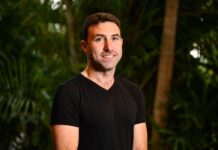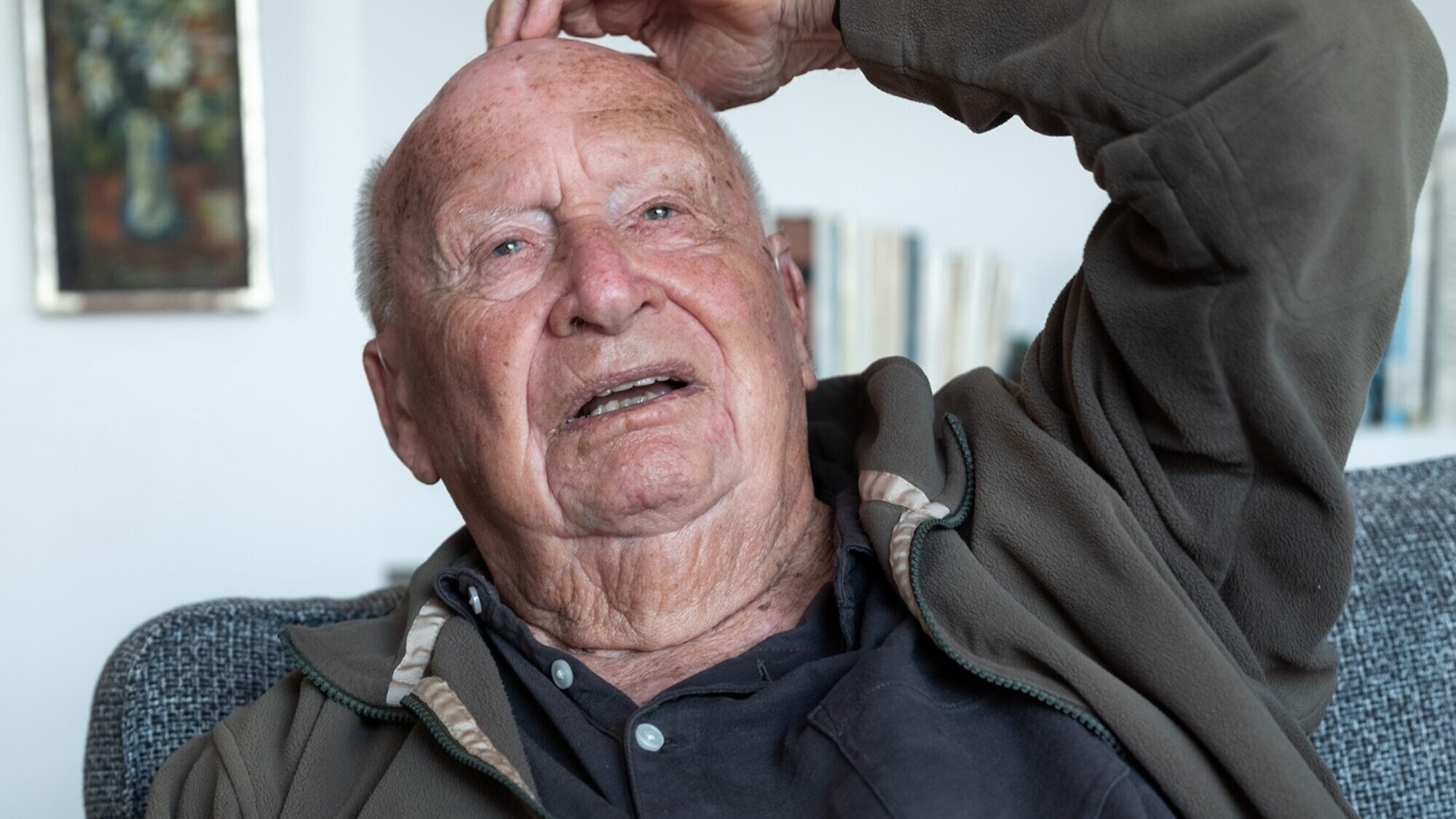Pushed into a train car by the SS after getting separated from his parents during the Nazi liquidation of the Warsaw Ghetto, the skinny Jewish teenager noticed a small unsecured window high up and started to plan his escape.
It was 1943 in German-occupied Poland.
About 15 minutes later, the train stopped. The 17-year-old pushed towards the opening and squeezed out. Alone, he made a run towards the woods, the other passengers too fearful to join him.
“They were afraid to escape, I don’t know why,” Stanislaw (Shlomo) Aronson recounted in an interview with JNS from his home in Tel Aviv last week.
He made his way back to Warsaw, joined the Polish resistance movement, and fought in the underground’s 1944 Warsaw Uprising against the Germans, where he was seriously wounded.
All of his relatives in Poland were murdered in the Holocaust.
Now 99 years old, Aronson has returned to Poland with his son and grandchildren to take part in Thursday’s 80th anniversary of the Warsaw Uprising, as a guest of honor and at the urging of his family eager to see their roots.
“I try not to think about it, otherwise it is impossible to continue living,” he said in the interview, talking about the past. “This is the way you survive.”
A happy childhood
Born in Warsaw in 1925, Aronson’s family moved to Lodz in the 1930s, where he had a happy secular childhood in an affluent and assimilated family. They mixed well with their Catholic neighbors and did not experience the antisemitism that many Polish Jews faced.
Despite his own staunchly secular upbringing, Aronson’s paternal grandfather had moved to pre-state Palestine in the wake of his great grandfather. However, Aronson’s parents were not Zionists; the family spoke strictly Polish at home even as they kept the Jewish holidays for the grandparents’ sake. His father maintained a textile business that exported materials to the U.K. and the U.S., as well as to the Land of Israel.
When World War II broke out, the family fled eastward and eventually settled in Lvov. The German invasion of the USSR two years later caused them to relocate to the Warsaw Ghetto, where they thought they would be safer.
Aronson’s older sister Janka disappeared off the streets one day after being caught in one of the deportations to the death camps in the summer of 1942.
On Jan. 18, 1943, the Germans renewed the deportations of Jews to Treblinka. The SS took Aaronson and his parents to the Umschlagplatz—the holding area adjacent to the Warszawa Gdańska freight train station where Jews were assembled for deportation to death camps. He lost sight of his parents, never to see them again. Hours later, he made his escape.
Aronson joined the Polish underground and, using an assumed name to hide his Jewish identity from most of his comrades, served in an elite unit that killed collaborators and Gestapo informers.
He then fought and was wounded on the front lines in the 1944 Warsaw Uprising, which was crushed by the Germans as the Red Army tarried nearby.
Following his recovery, Aronson managed to escape from the clutches of the Nazis yet again, and then from the Communists. After the war, he made his way to the Land of Israel, where he had a few relatives.
“They didn’t have to encourage me to move,” he said. “I didn’t have anywhere else to go.”
After registering to study biology at the Hebrew University of Jerusalem, Aronson was enlisted in the 1948-49 War of Independence (“wars follow me”), married and had two children. He went on to become a lieutenant colonel in the IDF, serving in the multiple wars before becoming a successful businessman.
The Jews thought
“The Jews thought that the Holocaust could never happen in Poland, and then the Poles didn’t help,” he said in the interview, wading into an avid discussion on the mixed role of the Poles during the Holocaust, when three million Polish Jews were murdered by the Germans and their collaborators.
“More than they didn’t want to help, the Poles were scared and wanted to survive,” Aronson said. “The Poles didn’t like many people, not only the Jews; that’s the reality.”
‘Nothing surprises me’
Looking back on his life, and the new resurgence of antisemitism around the world, Aaronson said, “When you live so long, you are not surprised at anything.”
With a son and two grandchildren living in St. Louis, he remains up to date on current events, including on the recent antisemitic protests on U.S. campuses. He noted that there was always antisemitism at the Ivy League universities, which made it nearly impossible for Jews of his generation to study there.
Aronson has been back to Poland several times since the fall of Communism in 1989, and has remained active in the commemorations of the Warsaw Uprising, including the installation of a commemorative plaque in memory of the Jewish fighters at the Umschlagplatz.
Unlike other Holocaust survivors, Aronson said he has rarely spoken about his wartime experiences with the young generation, because he didn’t want to bore people with a subject that he felt they were not interested in.
“My message to share is be understanding of each other, think about history a little deeper and don’t be influenced by trends of thinking,” he said.
As for his escapes from death, Aronson said everything in life is circumstance and luck.
“I believe in luck,” he said.
























